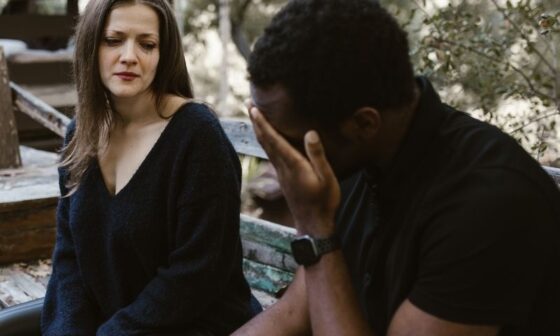What Do You Call Unmarried Couples in Obituary
In the solemn space of an obituary, where lives are commemorated and legacies are celebrated, the question arises: What do you call unmarried couples in an obituary? An obituary serves as a tribute, a record of a person’s life, and a means of communicating their relationships.
While traditional obituaries have relied on specific terminology for married couples, the evolving nature of relationships today calls for more inclusive language to reflect the diversity of partnerships and commitments. This article explores the terminology used for unmarried couples in obituaries, considering the challenges, evolving practices, and recommendations for creating inclusive and respectful tributes.
Traditional Terminology in Obituaries
Historically, obituaries have primarily used specific terms to refer to the spouses of the deceased. The terms “husband” and “wife” have been commonly employed, assuming a legal and formal marital union. These designations provide clarity regarding the nature of the relationship and the societal recognition it holds. However, they fail to encompass the complexity and diversity of relationships that exist beyond marriage.
Evolving Terminology for Unmarried Couples
In recent years, there has been a growing recognition of diverse relationships and the need for inclusive language in various aspects of society. Obituaries have not been immune to these changes. Many obituary writers now acknowledge the importance of reflecting the relationships of unmarried couples in their tributes. Rather than using the traditional terms reserved for married couples, alternative designations have emerged to embrace the nuanced nature of these partnerships.
When it comes to unmarried couples, different terms can be used in obituaries to describe the nature of their relationship. Common examples include “partner,” “companion,” “significant other,” or “beloved friend.” They strive to provide a more accurate representation of the relationship, respecting the bond formed irrespective of marital status.
Considerations and Challenges Determining the appropriate terminology for an unmarried couple in an obituary requires careful consideration of various factors. Personal preferences and cultural norms play a significant role. Some individuals may strongly identify with the term “partner” and find it appropriate for their situation, while others may prefer “companion” or “beloved friend.” Understanding the deceased’s preferences and consulting their loved ones can help ensure the obituary accurately reflects their relationship.
Legal recognition and societal acceptance also influence the terminology used in obituaries. While some regions legally recognize unmarried partnerships, others may not. Obituary writers need to be sensitive to the legal and cultural context in which the obituary will be published, considering the comfort level and potential reactions of the deceased’s family and the broader community.
Recommendations for Inclusive Obituaries
Creating inclusive and respectful obituaries for unmarried couples requires a thoughtful approach. Communication and collaboration with loved ones are essential. By understanding their preferences and experiences, obituary writers can accurately represent the relationship in the tribute. Consulting professional obituary writers, who are well-versed in inclusive language and etiquette, can also provide valuable guidance in crafting a meaningful obituary.
Using descriptive language can help bring the relationship to life in the obituary. Describing the couple’s shared experiences, accomplishments, and mutual support can paint a vivid picture of their bond. This approach allows readers to appreciate the depth of the relationship beyond a legal status, fostering empathy and understanding.
Conclusion
In the ever-evolving landscape of relationships, the terminology used in obituaries must adapt to reflect the diverse ways in which people form meaningful connections. Unmarried couples deserve to have their partnerships acknowledged and respected in these memorials. By embracing inclusive language and considering the preferences of the deceased and their loved ones, obituary writers can create tributes that honor the bond shared by unmarried couples, preserving their legacies with sincerity and compassion.
FAQ
Q1: Can unmarried partners be listed as spouses in an obituary?
A: While unmarried partners may share a deep commitment and emotional bond, listing them as spouses in an obituary can be misleading and inaccurate. It is essential to use terminology that accurately reflects the nature of their relationship, such as “partner,” “companion,” or “beloved friend.”
Q2: What are some alternative terms for unmarried couples in obituaries?
A: Alternative terms for unmarried couples in obituaries include “partner,” “companion,” “significant other,” or “beloved friend.” These designations capture the emotional connection and commitment shared by the couple, acknowledging their relationship without relying on marital status.
Q3: Is it necessary to include the relationship status in an obituary?
A: Including the relationship status in an obituary is a personal choice. However, it can provide meaningful context and recognition of the deceased’s significant relationships. It allows readers to better understand the impact and importance of the partnership in the deceased’s life.
Q4: How can obituary writers be sensitive to the preferences of unmarried partners?
A: To be sensitive to the preferences of unmarried partners, obituary writers should engage in open communication with the deceased’s loved ones. By actively listening and respecting their wishes, writers can accurately represent the relationship in the obituary and ensure it reflects the couple’s bond.
Q: Are there legal considerations when including unmarried partners in obituaries?
A: Yes, legal considerations may arise when including unmarried partners in obituaries, as legal recognition of unmarried partnerships varies across jurisdictions. Writers should be mindful of the legal context in which the obituary will be published and consider the comfort level and potential reactions of the deceased’s family and the community.







